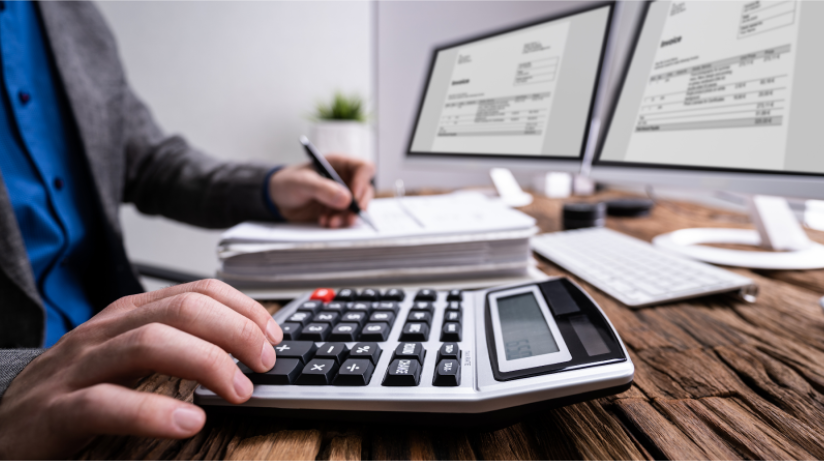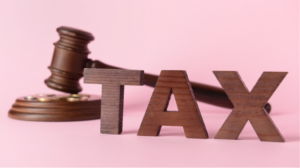
What to Do if you Owe Taxes on the CRB or CERB?
The COVID-19 pandemic was a difficult time for many people. You may have been one of many people who lost their jobs or lost income due to reduced work hours. As a result, you too may have leaned on additional sources of income to bridge the gap between lost wages and their expenses.
The Canadian government provided the Canada Recovery Benefit (CRB) to employed and self-employed individuals directly affected by COVID-19. For many, this benefit allowed them to pay for day-to-day expenses.
If you received CRB but later found you did not meet the eligibility criteria, you would have to pay back the benefit and may even receive a collection letter from the CRA.
However, if you were one of many eligible Canadians who relied on these benefits, it is crucial to consider whether you owe taxes for the upcoming tax deadline.
With tax season in full swing, now is a great time to understand how the CRB is taxed and what to do if you owe taxes on the benefit payments.
How is CRB taxed?
The CRB and most other COVID-19 payments are taxable benefits, which means that it is a form of income on which you must pay taxes.
Unlike the previous COVID-19 benefit payments, however, with CRB, the CRA already withheld a portion for taxes. You might have already paid your share of taxes before receiving the payment.
The CRA withheld 10% in taxes from payments before it paid out the CRB benefit. The amount will vary depending on whether you received the CRB benefit monthly or bi-weekly.
Monthly Payments – If you received a gross amount of CRB of $1,000, 10% or $100 of the benefit was withheld for taxes. You would have received $900 in your account per period.
Bi-weekly Payments – If you received a bi-weekly gross CRB amount of $600, $60 or 10% of the benefit was already withheld for taxes. You would have received a cash payment of $540 every two weeks.
CRB Clawback
The CRB payments had an additional condition. Depending on your total income for the year, you might owe more than the 10% held back. If you earned over $38,000, you might still owe additional taxes on the CRB benefit.
To figure out if you owe more than the amount withheld, you will need to know your total income from all sources, minus all the applicable deductions. The government wants to see if you made more than 38,000 in income, in addition to the CRB payments you received.
Sources of income can include:
- employment or self-employment income
- commissions or tips
- pension Income
- rental income
- investment income
Next, you’ll need to subtract any deductions, some of which can include:
- contributions to your Registered retirement savings plan (RRSP)
- moving expenses
- spousal support payments
After subtracting all the deductions, if your total income is less than $38,000, you likely do not owe any taxes on the CRB payments.
However, if your income is over $38,000, you will have to pay back $0.50 for every dollar you earn over $38,000, up to a maximum of the CRB payment received. For example, if you earn $40,000 – which is $2,000 over the clawback threshold – you would pay $1,000 in taxes. If you received less than $1,000 in benefits, you would pay back the lower amount.
What to do if I owe taxes?
The due date for payment of taxes on the CRB benefit is the same as your individual tax filing deadline.
Most people should file their 2021 tax returns by April 30, 2022. Any payments you need to make to the CRA are also due by April 30, 2022.
In addition, keep in mind that you may have received an extension for interest relief until April 30, 2022, for your 2020 taxes. The CRA had automatically provided interest relief if you filed your taxes in April 2021 but had taxes owing, an income of less than $75,000, and received at least one COVID-19 benefit in 2020.
What should I do if I owe taxes but cannot afford to pay?
The CRA has more forceful collection powers than banks, private lenders, and any other collection agencies. It is best to deal with the obligation as soon as possible to resolve any undue financial stress.
In addition, tax debt is expensive. Interest compounds daily until you pay back your tax debt.
Payment Arrangement with the CRA
If you cannot pay your taxes, the CRA may be open to making payment arrangements depending on your financial situation.
It is best to contact the CRA right away to see what options are available for you. They may agree to a regular payment that will allow you to pay your debt in a more manageable way.
Other ways the CRA collects debt
The CRA has other tools it can use to collect any tax debt. Often, the CRA may keep all or a portion of any tax refunds and/or GST/HST credits until you repay your debt.
In addition, the CRA can go down the route of garnishing your wages or freezing bank accounts to settle the tax debt.
Dealing with debt and taxes

If you owe taxes due to your CRB benefit or owe the CRA taxes, it can cause undue financial hardship.
Many Canadians saw many parts of their lives change dramatically during the pandemic. You may have had to look for a new job or take on reduced hours. It can be challenging to manage your finances when your income changes drastically.
Trying to navigate debt solutions on your own can be complicated and lonely. If you have tax debt or other debt due to COVID-19, it is best to deal with it as soon as possible.
If you are struggling with debt due to the pandemic, seek help from professionals such as a debt expert to help you explore your options.
Our team at EmpireOne Credit is here to help. If you are struggling to navigate your options to get out of debt due to the COVID-19 pandemic, we can help you find the best options to get out of debt and set you up for a better financial future. Contact us for a free consultation.






